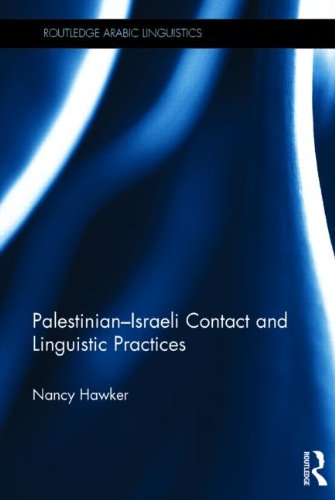

Most ebook files are in PDF format, so you can easily read them using various software such as Foxit Reader or directly on the Google Chrome browser.
Some ebook files are released by publishers in other formats such as .awz, .mobi, .epub, .fb2, etc. You may need to install specific software to read these formats on mobile/PC, such as Calibre.
Please read the tutorial at this link: https://ebookbell.com/faq
We offer FREE conversion to the popular formats you request; however, this may take some time. Therefore, right after payment, please email us, and we will try to provide the service as quickly as possible.
For some exceptional file formats or broken links (if any), please refrain from opening any disputes. Instead, email us first, and we will try to assist within a maximum of 6 hours.
EbookBell Team

4.3
48 reviewsOffering insight into linguistic practices resulting from different kinds of Palestinian-Israeli contact, this book examines a specific conceptualisation of the link between the political and economic contexts and human practices, or between structure and agency, termed "articulation".
The contexts of the military occupation, a shared consumer market, controlled cheap labour migration, and the provision of social services, supply the setting for power relations between Israelis and Palestinians which give rise to a variety of linguistic practices. Among these practices is the borrowing of Hebrew words and phrases for use in Palestinians’ Arabic speech. Hebrew borrowings can demarcate in-groups, signal aspirations to a modern lifestyle, and give a political edge to humour. Nancy Hawker’s explanation for these practices moves away from the notions of conflict and national identity and gives prominence to Palestinian and Israeli ideologies that inform the conceptual experience of Palestinians.
Addressing an understudied linguistic situation, Palestinian-Israeli Contact and Linguistic Practices brings us documentation and analysis of recent casework, firmly anchored in empirical results from fieldwork in three refugee camps in the Occupied Palestinian Territories. Combining sociolinguistics with politics, economics, sociology and philosophy this book will be of great interest to students and scholars of Middle East Studies, Linguistics and Political Theory.